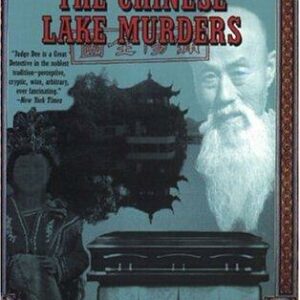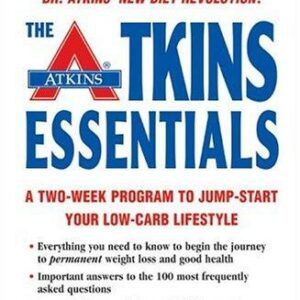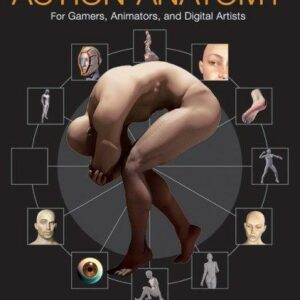Talent Is Overrated
$18.00
| Title | Range | Discount |
|---|---|---|
| Trade Discount | 5 + | 25% |
- Description
- Additional information
Description
“Excellent.”—The Wall Street Journal
Since its publication ten years ago, businesspeople, investors, doctors, parents, students, athletes, and musicians at every level have adopted the maxims of Talent Is Overrated to get better at what they’re passionate about. Now this classic has been updated and revised with new research and takeaways to help anyone achieve even greater performance.
Why are certain people so incredibly great at what they do? Most of us think we know the answer—but we’re almost always wrong. That’s important, because if we’re wrong on this crucial question, then we have zero chance of getting significantly better at anything we care about.
Happily, the real source of great performance is no longer a mystery. Bringing together extensive scientific research, bestselling author Geoff Colvin shows where we go wrong and what actually makes world-class performers so remarkable. It isn’t specific, innate talent, nor is it plain old hard work. It’s a very specific type of work that anyone can do—but most people don’t.
What’s more, the principles of great performance apply to virtually any activity that matters to you. Readers worldwide have been inspired by this book’s liberating message: You don’t need a one-in-a-million natural gift. Better performance, and maybe even world-class performance, is closer than you think.“Provocative.” —Time
“A profoundly important book.” —Dan Pink, author of A Whole New Mind
“What an exciting book!” —Ram Charan, coauthor of Execution
“I rejoice! What Geoff says comports totally with my own experiences in sports, law, and business.” —Herb Kelleher, founder, Southwest AirlinesGeoff Colvin, Fortune’s senior editor at large, is one of America’s most respected journalists. He lectures widely and is the regular lead moderator for the Fortune Global Forum. A frequent television guest, Colvin also appears daily on the CBS Radio Network, reaching seven million listeners each week. He coanchored Wall Street Week on PBS for three years. He lives in Fairfield, Connecticut.Chapter One
The Mystery
Great performance is more valuable than ever- but where does it really come from?
It is mid-1978, and we are inside the giant Procter & Gamble head- quarters in Cincinnati, looking into a cubicle shared by a pair of twenty-two-year-old men, fresh out of college. Their assignment is to help sell Duncan Hines brownie mix, but they spend a lot of their time just rewriting memos according to strict company rules. They are clearly smart: One has just graduated from Harvard, the other from Dartmouth. But that doesn’t distinguish them from a slew of other new hires at P&G. What does distinguish them from many of the young go-getters the company takes on each year is that neither man is particularly filled with ambition. Neither has any kind of career plan or any specific career goals. Every afternoon they play waste-bin basketball with wadded-up memos. One of them later recalls, “We were voted the two guys probably least likely to succeed.”
These two young men are of interest to us now for only one reason: They are Jeffrey Immelt and Steven Ballmer, who before age fifty would become CEOs of the world’s two most valuable corporations, General Electric and Microsoft. Contrary to what any reasonable person would have expected when they were new recruits, they reached the absolute apex of corporate achievement. The obvious question is how.
Was it talent? If so, it was a strange kind of talent that hadn’t revealed itself in the first twenty-two years of their lives. Was it brains? These two were sharp but had shown no evidence of being sharper than thousands of their classmates or colleagues. Was it mountains of hard work? Certainly not up to that point.
And yet something carried them to the heights of the business world. Which leads to perhaps the most puzzling question, one that applies not just to Immelt and Ballmer but also to everyone in our lives and to ourselves: If that certain something turns out not to be any of the things we usually think of, then what is it?
Look around you.
Look at your friends, your relatives, your coworkers, the people you meet when you shop or go to a party. How do they spend their days? Most of them work. They all do many other things as well, playing sports, performing music, pursuing hobbies, doing public service. Now ask yourself honestly: How well do they do what they do?
The most likely answer is that they do it fine. They do it well enough to keep doing it. At work they don’t get fired and probably get promoted a number of times. They play sports or pursue their other interests well enough to enjoy them. But the odds are that few if any of the people around you are truly great at what they do-awesomely, amazingly, world-class excellent.
Why-exactly why-aren’t they? Why don’t they manage businesses like Jack Welch or Andy Grove did, or play golf like Tiger Woods did, or play the violin like Jascha Heifetz did? After all, most of them are good, conscientious people, and they probably work diligently. Some of them have been at it for a very long time-twenty, thirty, forty years. Why isn’t that enough to make them great performers? It clearly isn’t. The hard truth is that virtually none of them has achieved greatness or come even close, and only a tiny few ever will.
This is a mystery so commonplace that we scarcely notice it, yet it’s critically important to the success or failure of our organizations, the causes we believe in, and our own lives. In some cases we can give plausible explanations, saying that we’re less than terrific at hobbies and games because we don’t take them all that seriously. But what about our work? We prepare for it through years of education and devote most of our waking hours to it. Most of us would be embarrassed to add up the total hours we’ve spent on our jobs and then compare that number with the hours we’ve given to other priorities that we claim are more important, like our families; the figures would show that work is our real priority. Yet after all those hours and all those years, most people are just okay at what they do.
In fact the reality is more puzzling than that. Extensive research in a wide range of fields shows that many people not only fail to become outstandingly good at what they do, no matter how many years they spend doing it, they frequently don’t even get any better than they were when they started. Auditors with years of experience were no better at detecting corporate fraud-a fairly important skill for an auditor-than were freshly trained rookies. When it comes to judging personality disorders, which is one of the things we count on clinical psychologists to do, length of clinical experience told nothing about skill-“the correlations,” concluded some of the leading researchers, “are roughly zero.” Surgeons were no better at predicting hospital stays after surgery than residents were. In field after field, when it came to centrally important skills-stockbrokers recommending stocks, parole officers predicting recidivism, college admissions officials judging applicants-people with lots of experience were no better at their jobs than those with very little experience.
The most recent studies of business managers confirm these results. Researchers from the INSEAD business school in France and the U.S. Naval Postgraduate School call the phenomenon “the experience trap.” Their key finding: While companies typically value experienced managers, rigorous study shows that, on average, “managers with experience did not produce high-caliber outcomes.”
Bizarre as this seems, in at least a few fields it gets one degree odder. Occasionally people actually get worse with experience. More experienced doctors reliably score lower on tests of medical knowledge than do less experienced doctors; general physicians also become less skilled over time at diagnosing heart sounds and X-rays. Auditors become less skilled at certain types of evaluations.
What is especially troubling about these findings is the way they deepen, rather than solve, the mystery of great performance. When asked to explain why a few people are so excellent at what they do, most of us have two answers, and the first one is hard work. People get extremely good at something because they work hard at it. We tell our kids that if they just work hard, they’ll be fine. It turns out that this is exactly right. They’ll be fine, just like all those other people who work at something for most of their lives and get along perfectly acceptably but never become particularly good at it. The research confirms that merely putting in the years isn’t much help to someone who wants to be a great performer.
So our instinctive first answer to the question of exceptional performance does not hold up.
Our second answer is the opposite of the first, but that doesn’t stop us from believing it fervently. It goes back at least twenty-six hundred years, to the time of Homer:
Call in the inspired bard Demodocus.
God has given the man the gift of song.
That’s from the Odyssey, one of many references in it and the Iliad to the god-given gifts of various characters. We’ve changed our views on a lot of important matters since then-how the planets move, where diseases come from-but we have not changed our views on what makes some people extraordinarily good at what they do. We still think what Homer thought: that the awesomely great, apparently super- human performers around us came into this world with a gift for doing exactly what they ended up doing-in the case of Demodocus, composing and singing. We use the same words that the ancient Greeks used, simply translated. We still say, as Homer did, that great performers are inspired, meaning that their greatness was breathed into them by gods or muses. We still say they have a gift, which is to say their greatness was given to them, for reasons no one can explain, by someone or something apart from themselves.
We believe further that such people had the great good fortune to discover their gift, usually early in life. While this explanation of great performance obviously contradicts the just-work-hard explanation, it’s much more deeply rooted and in some ways is more satisfying. It explains why great performers seem to do effortlessly certain things that most of us can’t imagine doing at all, whether it’s forming a strategy for a multibillion-dollar company or playing the Tchaikovsky Violin Concerto or hitting a golf ball 330 yards. The natural-gift explanation also explains why extraordinary performers are so rare; god-given talents are presumably not handed out willy-nilly.
This explanation has the additional advantage of helping most of us come to somewhat melancholy terms with our own performance. A god-given gift is a one-in-a-million thing. You have it or you don’t. If you don’t-and of course most of us don’t-then it follows that you should just forget now about ever coming close to greatness.
Thus it’s clear why most of us don’t dwell on the mystery of great performance. We don’t think it’s a mystery. We’ve got a couple of explanations in our head, and if it ever occurs to us that the first one is clearly wrong, well, the second one is what we really believe anyway. And the nicest thing about the second explanation is that it takes the matter of great performance out of our hands. If we were really a natural at anything, we’d know it by now. Since we’re not, we can worry about other things.
The trouble with this explanation-except it isn’t trouble, it’s excellent news-is that it’s wrong. Great performance is in our hands far more than most of us ever suspected.
New Findings on Great Performance
It turns out that our knowledge of great performance, like our knowledge of everything else, has actually advanced quite a bit in the past couple of millennia. Scientists began turning their attention to it in a big way about 150 years ago, but what’s most important is the growing mountain of research that has accumulated in just the past forty years. When this book was first published, that research was little known outside of a small group of academics; most people’s beliefs about great performance were the same as Homer’s. The findings were strikingly clear and obviously important. They just hadn’t made their way into people’s heads.
Interest in the reality of great performance has since exploded. This surge in interest has triggered an avalanche of books and articles-some of them accurate and helpful, others quite misleading-prompting a secondary avalanche of new research. On the whole, these newer studies have overwhelmingly supported the key findings of the foundational research. A few studies have sought to disprove the big-picture thesis of the work (and of this book). About the best that can be said for such studies is that they succeeded in attracting media attention, which in some cases seemed to be their primary purpose. But a close look shows that these studies mostly “debunk” claims that the foundational research never made, or that their data do not support the conclusions the authors draw, as we shall see.
More important, the debate has moved beyond the scientific journals and into the real world, where there really is no debate. The new findings about great performance are revolutionizing the way people everywhere learn new skills. People and organizations worldwide have used the principles described in this book to get better at all manner of pursuits: playing video games, drawing pictures, drawing a handgun (from its holster), trading stocks, inserting a needle into a patient’s vein, writing software, writing a story, selling anything, learning American Sign Language, teaching math, taking photographs, performing psychotherapy, playing countless sports and musical instruments, and much else. In many cases the performance improvements are dramatically greater than any advances previously achieved. Ordinary people are discovering for themselves that the researchers’ findings are powerfully valid. Conducted by scientists around the world, who have looked into top-level performance in a wide array of fields, including management, chess, swimming, surgery, jet piloting, violin playing, sales, novel writing, and many others, these hundreds of research studies have converged on some major conclusions that directly contradict most of what we all think we know about great performance. Specifically:
¥ The gifts possessed by the best performers are not at all what we think they are. They are certainly not enough to explain the achievements of such people-and that’s if these gifts exist at all. Some researchers now argue that specifically targeted innate abilities are simply fiction. That is, you are not a natural-born clarinet virtuoso or car salesman or bond trader or brain surgeon-because no one is. Not all researchers are prepared to accept that view, but the talent advocates have a surprisingly difficult time demonstrating that even those natural gifts they believe they can substantiate are particularly important in attaining great performance.
¥ Going beyond the question of specific innate gifts, even the general abilities that we typically believe characterize the greats are not what we think. In many realms-chess, music, business, medicine-we assume that the outstanding performers must possess staggering intelligence or gigantic memories. Some do, but many do not. For example, some people have become international chess masters though they possess below-average IQs. So whatever it is that makes these people special, it doesn’t depend on superhuman general abilities. On that score, a great many of them are amazingly average.
¥ The factor that seems to explain the most about great performance is something the researchers call deliberate practice. Exactly what that is and isn’t turns out to be extremely important. It definitely isn’t what most of us do on the job every day, which begins to explain the great mystery of the workplace-why we’re surrounded by so many people who have worked hard for decades but have never approached greatness. Deliberate practice is also not what most of us do when we think we’re practicing golf or the oboe or any of our other interests. Deliberate practice is hard. It hurts. But it works. More of it equals better performance. Tons of it equals great performance.
While there’s a lot to be said about deliberate practice, a few initial observations are key:
¥ Deliberate practice is a large concept, and to say that it explains everything would be simplistic and reductive. Critical questions immediately present themselves: What exactly needs to be practiced? Precisely how? Which specific skills or other assets must be acquired? The research has revealed answers that generalize quite well across a wide range of fields. It certainly seems daunting to seek a common explanation for greatness in both ballet and medical diagnosis, for example, or insurance sales and baseball, but a few key factors do seem to account for top performance in those realms and many more.US
Additional information
| Weight | 8.4 oz |
|---|---|
| Dimensions | 0.7000 × 5.4800 × 8.4200 in |
| Imprint | |
| ISBN-13 | |
| Author | |
| Audience | |
| BISAC | |
| Subjects | Manage, development, flow, passion, grit, training, expert, personal development, Excellence, ability, self-help, Child Development, prodigy, ge, self help books for men, Expertise, motivational books for men, success books, high school graduation gifts, raising boys, high performance, peak, manager, high performance habits, performance, management, success, psychology, BUS107000, business, coach, coaching, learning, education, Sports, music, parenting, leadership, focus, motivation, peak performance, SOC026040, career, memory, fortune, train, talent, practice |
| Format |











